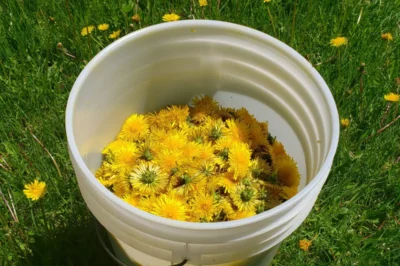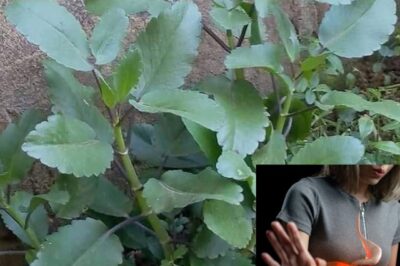Any gardeners cultivate beautiful plants to enhance their outdoor spaces, often unaware that some of them may be highly toxic. One such plant is Datura Stramonium, also known as Jimsonweed, Devil’s Snare, or Thorn Apple. Despite its striking appearance, this plant contains potent toxins that can pose serious health risks if ingested or improperly handled.

Identifying Datura Stramonium
Belonging to the Solanaceae family—which includes tomatoes and potatoes—Datura Stramonium is an annual plant that can grow several feet tall. It features large, trumpet-shaped flowers in shades of white, yellow, or purple. Its broad, lobed leaves with irregularly serrated edges make it easy to recognize.
The Dangers of Datura Stramonium
This plant contains highly toxic alkaloids, such as atropine, scopolamine, and hyoscyamine, which can cause severe poisoning in humans and animals. Consuming any part of the plant—including its leaves, seeds, flowers, or roots—can lead to hallucinations, confusion, rapid heartbeat, dry mouth, difficulty swallowing, and even coma or death in severe cases.
Accidental Exposure and Risks
Despite its toxicity, some people grow Datura Stramonium for its decorative appeal, and its seeds have been used in traditional medicine or for recreational purposes due to their hallucinogenic effects. However, this presents a significant danger, particularly to children and pets who may come into contact with it unknowingly.
Preventing Poisoning and Ensuring Safety
Gardeners should learn to identify Datura Stramonium and exercise caution when handling or disposing of it. If accidental ingestion or contact occurs, seek immediate medical attention, as prompt treatment is crucial.
While this plant may add visual appeal to a garden, its high toxicity makes it unsuitable for households with children or pets. Always research plants before introducing them to your garden, and if you discover Datura Stramonium, take appropriate measures to remove it safely and prevent accidental exposure.
News
Watermelon, Carrot, Beetroot, and Ginger Juice: The Ultimate Glow Drink! 



Ladies, if you’re looking for a natural way to boost energy, enhance your skin’s glow, and nourish your body, this…
With This Potent Blend, You’ll Keep Her/Him Happy All Night Long… 
With This Potent Blend, You’ll Keep Her/Him Happy All Night Long… 
This unpretentious wonder of nature grows everywhere but most people underestimate it…
News Home Chưa phân loại This unpretentious wonder of nature grows everywhere but most people underestimate it… This unpretentious wonder of nature…
The Ultimate Guide to Planting Tomatoes: Expert Tips for Bountiful Harvests
The Ultimate Guide to Planting Tomatoes: Expert Tips for Bountiful Harvests Tomatoes are a staple in gardens worldwide, admired for…
3 Things You Should Never Do After Drinking Coconut Water
3 Things You Should Never Do After Drinking Coconut Water Coconut water is a refreshing and nutritious drink packed with…
The Miracle Leaf of Life: 7 Incredible Health Benefits You Need to Know
The Miracle Leaf of Life: 7 Incredible Health Benefits You Need to Know In the expansive world of natural remedies,…
End of content
No more pages to load












